by Jude Rogers.
21. New Lines
Walking where you live is like being on auto-pilot. To your front door, close your eyes, feel the air on your skin, on your neck, and your hands, and your tongue, and you can almost let your feet move, turn the corner, toe the yellow lines, wake up in fifteen minutes where you wanted to be. But when you move somewhere new, as I have, the coordinates change. Around each new corner is blankness, an alien landscape, new things lurking unannounced to be spotted and logged. One month on in this new part of London, I’m still crossing off battleships in my big, grown-up world.
a. Today, I walk from to Leyton from Walthamstow, as has become my new habit. I like to get my heart racing, get the blood through my veins. Years ago, all this area was to me was the tip of the long, light blue artery that ran from the belly of the city to the mysterious North. Then, over time, I began to give it shape. There was the date one cold evening five years ago with the man off the internet, who hadn’t listed his height, who had really made me laugh. Seeing him, five foot four, at the corner of the bar, our heavy drinks in the Goose, tiny snails in the Village, me pinballing one of them around the room, our laughs ricocheting along with it.
Wagner won’t write any operas about us, will he, he wrote the next day. I remember wondering how to put that into words myself as we walked back to the station, me towering over him, past the little piece of grass where the pigeons congregate today. It’s such a tiny piece of land, so grubby, so inconspicuous, but it still makes me remember that he did that for me.
b. Hoe Street is long, and not particularly lovely. It smells of patchouli and petrol, chemical colours and chip oil. Its buildings, ignored by the traffic, are saggy and defeated, apart from the old Telephone Exchange, which squats in its middle.
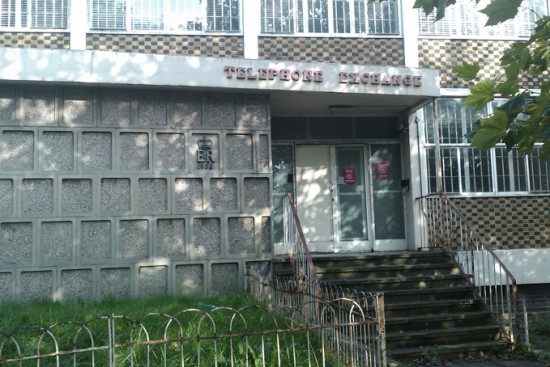
Long closed and forlorn, it still has a strange power. Its sign speaks of Lord Reith’s BBC, black-and-white post-war documentaries, the shock of the glorious new, the melancholia of the old.
c. Further down, a building has layers of white words on its brown, northern flank, all clues to what once happened within it. I try and read it, but the light stings my eyes – hints of removals and emeralds are now blurred into foreign tongues. The sign for Matlock Parade, similarly long forgotten, blushes above Boundary Road, and as I stretch to take a photograph, an old man shakes his head.
As I approach the Bakers Arms junction, I notice how odd the shiny new shopfronts look, locking themselves awkwardly onto dusty frames, their plastic signs garish in the afternoon light.
d. As always, there is life at the Bakers Arms, where Lea Bridge Road and Leyton High Road squeeze together haphazardly. This is where so many buses go to rest their weary engines, the 55s lining up for a fag and a snooze.
But the Bakers Arms itself is no longer a pub. Now it is a betting shop, green as the season. Opposite, M Winger, the watchmakers, shows what riches there can be. It is a wonderful anomaly – a beautiful shop that has stood through a century, its old jewels, its silver timepieces, promising other worlds.
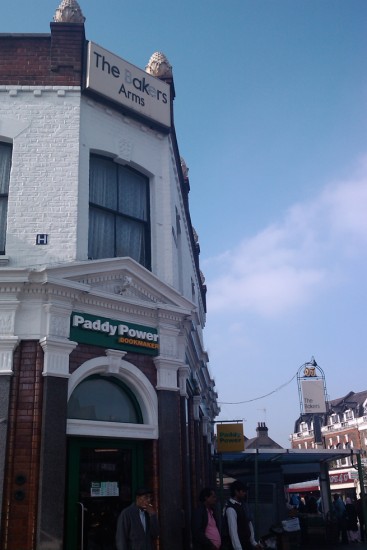
The sun glints as the shutter goes, framing it in sepia.
d. Onto Leyton High Road, there there are snooker rooms, saunas, the stains of the devil drink. A lovely old sign for Holsten Pils sits above a busy off licence, the William The Fourth bubbles behind its swinging doors. Inside, men swear about the darts, then dash out for a Marlboro, cradling half-empty glasses of the pub’s homebrewed beer.
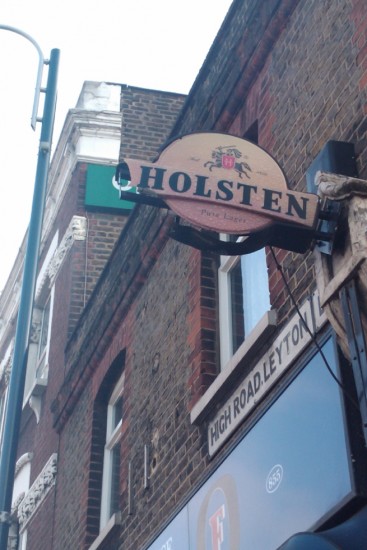
An old cinema sits a few buildings down, rather spoiling the scene; now a blank, dirty cream, like a Stalinist memorial. COMMUNITY PLACE reads its sign, a branch of Ladbrokes beneath it. The anger starts to rise in me, and again, I turn away.
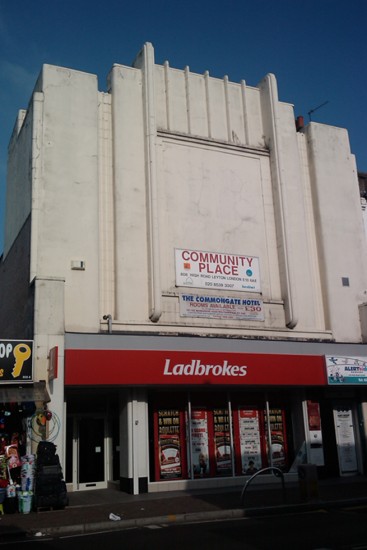
e. As I near our house, I keep seeing the starts of stories everywhere. By Leyton Midland Road station, a wonky postbox, coming out of the pavement at a perilous angle. A Caribbean takeaway in an old Georgian terrace. A Building Supplies Centre redeployed as an Islamic Trust, and a gate, tied with wire, which is “for sisters only.” The pink bridge by the old cricket ground, the lollipop lady with the tall neon hat, the big house on the corner, its old fence leaning towards it. I feel the need to tell everything, to stop turning away, to open my eyes, feel the air, make my way once again.
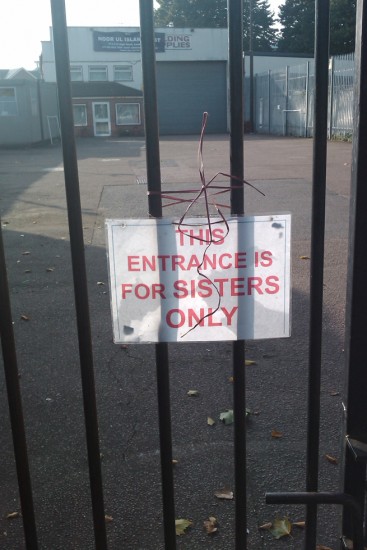
I look at my red shoes, and I know what they are telling me. There is no time like now. And there is no place like home.